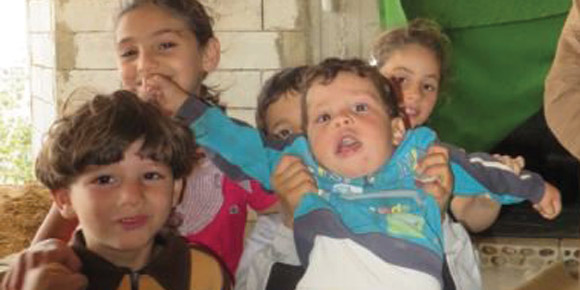by Paul Hesse
There have been many interesting and recent developments in immigration to Manitoba. These changes affect who will be immigrating to our province in the coming years as well as our housing market.
A well-publicized recent change has been the welcoming of Syrian refugees in Manitoba and elsewhere in Canada. The first families have already settled in Altona and Winnipeg earlier this month and hundreds of Syrian refugees arrived in January, with more to come. Altona is welcoming five families for a total of 45 people. By the first week of January, Winnipeg’s Welcome Place, which traditionally offers temporary housing to refugees, was already full to capacity.
While the overall numbers of refugees arriving are not dramatic, given Manitoba’s strong tradition of welcoming refugees regularly, it is already having an impact on housing. Altona volunteers only had a few days to prepare a rental house for their first family. Welcome Place is full and rental accommodation is needed for the growing number of Syrian newcomers. The province is asking landlords to advise them of any two- to five-bedroom units available to rent.
However, approximately 70 per cent of Manitoba’s new permanent residents come through the Manitoba Provincial Nominee Program. There have been important changes to that system. Under the new rules, which took effect in 2015, applicants are first scored based on a points grid and only those earning the highest number of points are invited to submit a full application.
Generally, only those who are already working in Manitoba, or who are outside Canada with close family in Manitoba, are now being selected. For those outside of Canada, only those of prime working age, with very strong English or French skills, as well as completed post-secondary education and multiple years of work experience, are being invited to submit a full application.
Manitoba has become more selective and many potential candidates are disappointed at not being invited to submit a full application in spite of their interest in immigrating to our province.
One reason for this development is the ongoing issue of the cap on how many candidates Manitoba is allowed to nominate for permanent residence by the federal government. For the last few years, it has been capped at 5,000 main applicants (plus immediate family members), which has limited growth in immigration to Manitoba.
Happily, as of 2015, Manitoba is now also allowed to nominate up to 500 main applicants through the federal Express Entry system. This effectively increased the cap by 10 per cent and provides some welcome flexibility to Manitoba.
Another important development is the re-opening of Manitoba’s business immigration program. It is now also based on a points grid system whereby candidates are scored and then only those with the highest number of points are invited to submit a full application. This has reduced processing times for the strongest applicants, while limiting intake of those deemed less attractive. Language skills, connection to Manitoba, business experience, age and net worth are factors that affect one’s points score. While these business immigrants are affluent and likely to buy homes quickly and invest in businesses, their numbers are relatively small.
This program only brings a few hundred people to Manitoba per year.
Eighty-five per cent of Manitoba’s immigrants have been settling in Winnipeg. That is a higher percentage than 10 years ago, when rural Manitoba received more provincial nominees. Changes to worker recruitment rules and stricter English language requirements have been factors in reducing immigration through job offers in rural areas.
Manitoba’s immigration levels are holding pretty steady, but the makeup is changing. Those who are being approved through the Manitoba Provincial Nominee Program are now more likely to have strong English skills and Winnipeg will receive the vast majority of those new arrivals. We will also be seeing more Syrian arrivals in 2016 and will be welcoming them into our community. As before, these new arrivals will need places to live.
(Paul Hesse is an immigration lawyer and partner at Pitblado Law.)



